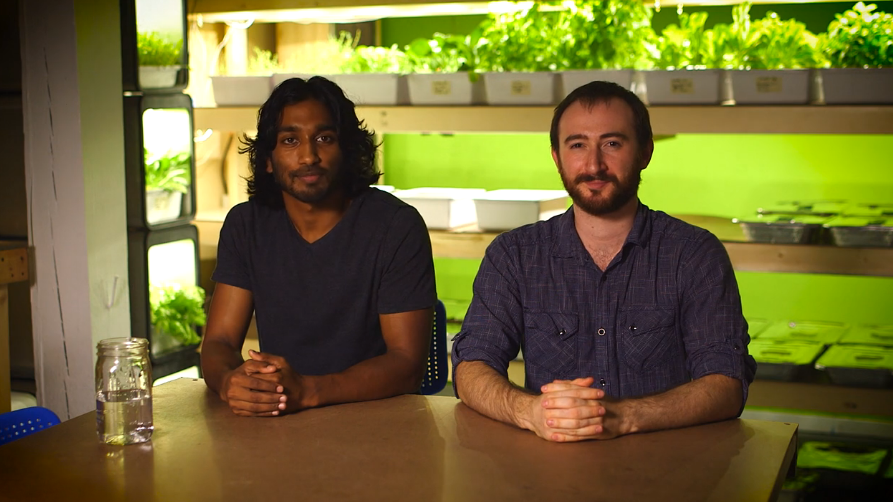Replantable Brings the Farm to Your Kitchen

Keeping produce fresh is a struggle many know all too well, and according to Replantable cofounder Ruwan Subasinghe, most of this problem can be attributed to problems inherent in the fresh food supply chain. 'We saw how inefficient it is to ship food for thousands of miles, not only do you waste a lot of it and use a lot of energy, but the produce isn't very fresh when it gets to the consumer.' Subasinghe says.
Solving the Fresh Food Supply Chain
This problem in the supply chain is the issue Replantable aims to solve. After meeting at Georgia Tech, Ruwan and his co-founder Alex Weiss got to work on their attempt to make an impact on the massive food waste issue by altering how consumers received their fresh produce.  Replantable Founders Ruwan Subasinghe and Alex Weiss[/caption] The team took input from both producers and consumers and discovered a market that could cut into the myriad of supply chain inefficiencies inherent in fresh food simply by growing it at home. This idea would establish Replantable and its first breakthrough product: the Nanofarm.
Replantable Founders Ruwan Subasinghe and Alex Weiss[/caption] The team took input from both producers and consumers and discovered a market that could cut into the myriad of supply chain inefficiencies inherent in fresh food simply by growing it at home. This idea would establish Replantable and its first breakthrough product: the Nanofarm.
The Next Big Thing
Replantable's Nanofarm is a countertop appliance that uses LEDs and a hydroponic system to grow plants indoors. Users place a biodegradable plant pad that contains seeds and the nutrients they need on top of a basin of water and set the Nanofarm's controls to match the variety of the plant being grown. From there it is literally a hands-off approach to gardening, as the Nanofarm controls both the watering and light schedules needed to grow fresh food.
Subasinghe sees this innovation as a way to bring the idea of gardening into the lives of those that due to packed schedules or condensed urban living don't have the time or space with which to do so. Inventing and producing a brand new appliance straight out of college doesn't come without its challenges.
In order to clear those hurdles, Subasinghe and Weiss turned to the Georgia Centers of Innovation. After becoming acquainted with Center of Innovation for Energy Technology Director Costas Simoglou, they were connected with the Center of Innovation for Manufacturing, where they were able to produce their initial run of prototypes that would be used for beta testing. Some of these prototypes would go to schools in both the City of Atlanta and Walker County (connections made by the Center of Innovation for Energy Technology) along with sensors from the Georgia Tech Research Institute to be used as educational tools in those schools.
Looking Into the Future
It seems the possibilities are endless for the Nanofarm. Recently, a unit was outfitted to grow algae for biofuels and displayed by NASA at the Kennedy Space Center as an example of how we might eventually sustain human life on Mars. In the meantime, Ruwan Subasinghe and Alex Weiss hope to both revolutionize the way we get our fresh food and bring an affordable, sustainable source of fresh produce to some of the country's 'food deserts.' Last month, Replantable concluded a successful Kickstarter campaign by raising over $60,000 to begin production on the first line of Nanofarms.
In the next year, consumers can expect to begin growing salad greens, small root vegetables, herbs, and microgreens on their kitchen counters. As for larger produce? Subasinghe says they hope to have a larger-scale Nanofarm developed within the year.
Click here to find out how the Georgia Centers of Innovation can help get your business of the ground.
